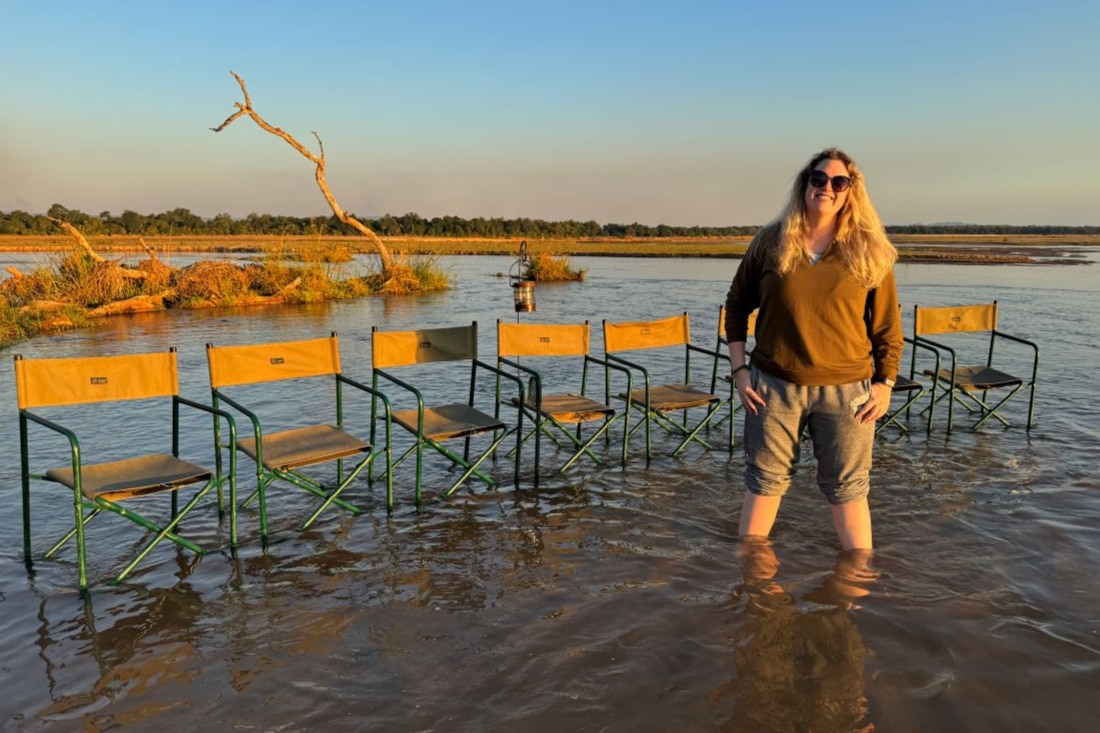Loneliness is on the rise, and it has negative side effects on physical and mental health. Learning how to connect with people is crucial for everyone to lead a better life. Whether you move to a new city, start a new job or are looking for a general change, there are strategies and methods you can learn to connect with new people and change your perspective.
When you want to connect with a new community, you can take up new hobbies, attend networking events, interact with different people and participate in activities you may not have previously considered. Finding fulfillment in your personal and professional life requires stepping out of your comfort zone, confronting your fear and putting yourself out there.
The Importance of Genuine Connections
When working on connecting with new people, it’s important to pay attention to the types of connections you’re making. Though all connections start as superficial, you must put time and energy into making genuine connections.
A genuine connection requires investment from you and the person you’re building a relationship with. Vulnerability and empathy are two major qualities to focus on for a genuine connection. It’s important to be honest about yourself and try to understand where other people are coming from.
In addition to these qualities, you’ll forge deeper connections with consistency. When it comes to networking, it’s especially important to be consistent. When you embed yourself in a new community, consistently showing up will make you a part of it more quickly and allow you to better connect with people. A study found that 85% of all hires are made through networking, making genuine connections crucial for career building.
How to Meet New People
Connecting with others means meeting new people first. When you’re feeling lonely or isolated, meeting new people is a great way to get out of a funk.
Often, we get stuck in analysis paralysis, believing we are “too young for this” and “there aren’t enough opportunities for that” instead of simply getting started where we are. Put that thinking aside and use the following tips that will help you make connections today for success tomorrow.
Be Curious
Curiosity is a skill you have to cultivate, not a natural state. Give yourself the gift of curiosity, especially when connecting with new people. While in a state of curiosity, your mindset and approach to new opportunities or challenges shifts, opening doors you didn’t know existed (and meeting people you’d never dream of meeting). Stay curious and open-minded. Ditch the need to compare old opportunities with new ones and find new worlds.
Ask open-ended questions to show others that you are curious and interested. This lets your conversation partner know you care about what they have to say.
Trying new hobbies is also a great way to push yourself out of your comfort zone. By dabbling in new things, you inevitably make new connections. A handful of these connections may even influence you and push you in a positive (and more successful) direction.
Common Mistakes to Avoid
When you’re working on opening up your curiosity to connect with new people, try not to ask extremely personal questions. Let the person you’re talking to share naturally.
If you choose to pursue a new hobby, you should also be honest with yourself about your level of expertise. For example, don’t sign up for an advanced pottery class if you’re only a beginner. Make sure you’re giving yourself time to learn so you can comfortably contribute.
To practice this in real life, think of someone you see regularly, like at a coffee shop or during school pickup, and try to start a conversation with them. This will help you practice connecting with others and demonstrate curiosity.
Be Coachable
Allowing someone else to tell you what to do is very difficult. When being coached, you allow yourself to be assessed by someone else. However, the Institute of Coaching found that 80% of people who went through coaching reported increased self-confidence, which is crucial for connecting with new people.
Being coached isn’t easy. It can feel a lot like criticism, and criticism can feel cold, especially when it’s coming from someone you don’t know. But being coached can be the very thing that leads you to your next opportunity. You don’t always have to agree, but coachability will take you a long way if you’re merely open to learning. Coachability can help you make connections and build relationships.
Coachability comes with practice. Additionally, it involves getting to the root of your fears. For instance, if you fear vulnerability, make a point of letting your guard down. Leaving yourself open to feedback (warranted or not) can help you buck up and be more open to new connections.
Common Mistakes to Avoid
When you’re going through a coaching experience, try not to take things too personally. Coaching is an evolving process between you and your coach. And remember, professional coaches are not trying to break you down. Their perspective is valuable to help you level up, which may mean they often target the areas that make you uncomfortable.
To get more comfortable receiving feedback, start small by asking a friend for advice about a work project. Whether it’s a presentation, a brief or a conversation you want to have with your boss, being open to feedback from someone you trust will help you build the muscle of being open to feedback from new people.
Be Willing to Connect With New People
Networking is hard. Most often, it’s because it feels purely transactional and even superficial. Even if you’re the bubbliest person in the room, networking can still be challenging to navigate. But to find success, embrace the willingness to connect. Try to suspend your ideas about a person and their motivations in favor of building a relationship. Be willing to talk and make new connections without those preconceptions hanging in the air.
If you move to a new city, try stepping out of your comfort zone. You could set a goal like meeting 100 people in 100 days. Here are a few ways to make it happen:
- Schedule regular one-on-ones: Whenever you meet someone new, try to follow up and schedule a coffee, lunch or activity to continue building the relationship. Start with people you know a little bit, both professionally and personally, and then ask them to recommend other folks. And just like that, your connections grow exponentially.
- Try volunteering: It’s one of the fastest and most rewarding ways to meet new people, many of whom are highly influential. Join a committee, serve as a camp counselor, participate in nonprofit clubs, volunteer at local churches or host a charity event. Volunteer possibilities are endless, as are the connections you’ll make along the way.
- Look into mentorship opportunities: Whether you’re a mentor or a mentee, you’ll get a lot out of this new kind of connection. The term “mentor” has become synonymous with “time commitment,” and this occasionally deters people. However, mentorship can be whatever both parties decide it should be. It can be a quick cup of coffee here or a half-hour phone call there; it can be a weekly, monthly or even quarterly check-in. The insights a mentor can provide to their mentee—and vice versa—are boundless, so make it work with your schedule.
Perhaps selfishly, our motivation to network may come solely from the desire to be successful. But remember: Others out there are going after it, too, so help them find connections. Be the person who introduces Evelyn to Jaime because you know an unbelievable partnership can flourish. It benefits you, too—they’ll remember you for it, and a relationship with them will also flourish.
Common Mistakes to Avoid
When you work on meeting new people and building relationships, you should still be intentional about how many new people you connect with. Creating genuine connections requires time and investment wherever you are on the introvert to extrovert scale. Make sure you’re meeting new people sustainably to continue building connections with them over time.
To get started today, seek out an event you wouldn’t normally attend and talk to someone. You can try going to a play or an artistic event you’re interested in and talking to another new person in the audience. Be willing to put yourself in new places and spaces with new people.
Networking Challenges
Even though networking can be intimidating, it’s beneficial for learning how to connect with new people and is great for your professional life.
Networking can be hard because of social anxiety or social exhaustion. Letting anxiety take over your life can prevent so many meaningful interactions, so it’s important to work on strategies to overcome it and put yourself in new situations. Meditation, positive affirmations and practice can help you.
Dealing with rejection is another not-so-fun but integral part of networking. It can be demoralizing when you send an email or message and don’t receive a response or get a negative one. But don’t let it define your whole experience. Many people are willing to be open and connect, and the more you seek them out, the more you’ll find them.
One part of working on personal development is connecting with new people. It helps you see yourself differently and learn about new perspectives that expand your worldview. Networking and putting yourself out there can help boost your confidence and manage social anxiety.
Invest in Yourself by Connecting With Others
No matter how much you struggle to connect with new people, you should know you’re not alone. Many people are trying to find new ways to engage with the world around them, and are just as eager to connect with you. To get started today, tell someone you know that you want to start connecting with more people. Maybe this will be a small accountability nudge that may help get you started.
Photo by fizkes/Shutterstock.







